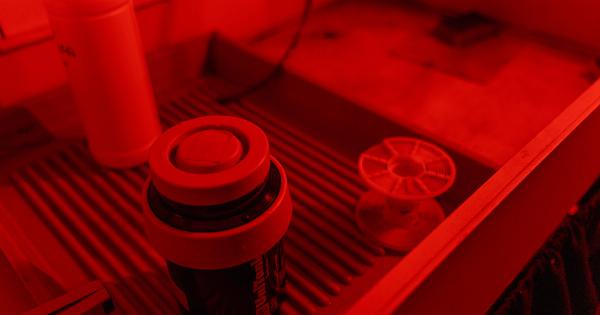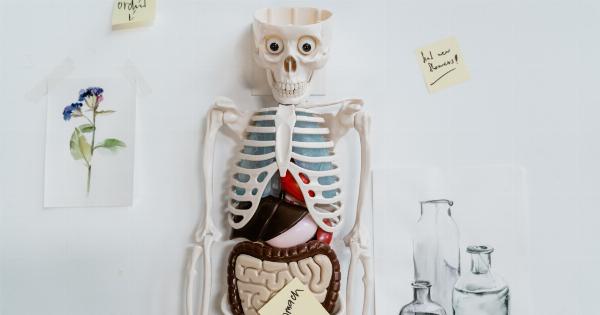As medical science progresses, doctors are finding new and innovative ways to save lives. One of the most remarkable advancements is in the field of organ transplantation.
More specifically, the ability to transplant intestines has revolutionized the treatment of patients with severe gastrointestinal conditions. In this article, we will explore the life-saving potential of intestinal transplants and how they are making a difference, one intestine at a time.
The Importance of Intestines
The intestines play a crucial role in our digestive system, absorbing nutrients from food and facilitating the removal of waste.
When the intestines are damaged or fail to function properly, it can lead to a wide range of complications, such as malnutrition, dehydration, and even death. Traditionally, the approach to treating such conditions involved managing symptoms and providing nutritional support. However, for some patients, this approach proved to be insufficient.
The Birth of Intestinal Transplantation
Intestinal transplantation emerged as a potential solution for patients with severe intestinal failure, where the intestines are no longer able to perform their vital functions.
The first successful intestinal transplant took place in 1987 and since then, thousands of patients have benefited from this life-saving procedure.
Who Needs an Intestinal Transplant?
Intestinal transplantation is considered for individuals with irreversible intestinal failure, often caused by conditions such as:.
- Crohn’s disease
- Necrotizing enterocolitis
- Intestinal atresia
- Motility disorders
- Short bowel syndrome
These conditions severely impact a person’s ability to absorb nutrients and can lead to serious complications. When all other treatment options have been exhausted, an intestinal transplant may be the only hope for these patients.
The Challenge of Intestinal Transplants
Despite the tremendous benefits of intestinal transplantation, it is not without its challenges. One of the main hurdles is the scarcity of donor organs.
Unlike other organs like kidneys or livers, intestines are relatively rare for transplantation due to the complexity of the procedure and limited availability of suitable donors.
Another challenge lies in the high risk of complications following the surgery. Intestinal transplantation is a complex procedure that requires a highly skilled team of surgeons and anesthesiologists.
Patients receiving an intestinal transplant are at risk of rejection, infection, and graft-versus-host disease. Close monitoring and lifelong immunosuppression are necessary to ensure a successful outcome.
Improving Outcomes and Expanding Donor Pool
Over the years, medical advancements have led to improved outcomes and a gradual expansion of the donor pool for intestinal transplantation.
One notable development is the use of reduced-size grafts, where a portion of the small intestine is transplanted rather than the entire organ. This allows for a higher number of potential donors, including living donors who can donate a segment of their intestine.
In addition, the introduction of new surgical techniques and better immunosuppressive medications has contributed to higher success rates and improved long-term outcomes.
These advancements have made intestinal transplantation a viable option for more patients in need.
The Impact on Quality of Life
Intestinal transplantation can have a profound impact on the quality of life for recipients.
For individuals who have spent their lives dependent on parenteral nutrition and suffering from debilitating symptoms, a successful transplant can provide newfound freedom. Patients are often able to resume a normal diet and lifestyle, no longer burdened by the limitations imposed by their intestinal condition.
Children who undergo intestinal transplantation can experience particularly significant improvements. The procedure can allow them to grow and develop properly, overcoming the growth impediments associated with intestinal failure.
Continual Advancements and Future Possibilities
As the field of intestinal transplantation continues to progress, researchers are exploring new possibilities and improvements. One area of focus is the development of tissue-engineered intestines.
Scientists are working on growing functional intestinal tissue in the laboratory, which could help address the shortage of donor organs and reduce the risk of complications.
Additionally, advancements in immunosuppressive medications are being made to minimize the risks of rejection and improve long-term outcomes.
The hope is to provide patients with an even better chance at a successful transplantation and a higher quality of life.
The Importance of Organ Donation
While the advancements in intestinal transplantation are undoubtedly significant, it is essential to remember that none of it would be possible without organ donors. Organ donation is a selfless act that saves lives and gives hope to those in need.
By registering as an organ donor, you have the power to make a difference and potentially save someone’s life, one organ at a time.
In Conclusion
Intestinal transplantation is a life-saving procedure that has transformed the lives of many patients suffering from severe intestinal conditions.
Despite the challenges it presents, the field continues to evolve, improving outcomes, and expanding the possibilities for more patients. Through ongoing research and the generosity of organ donors, the medical community is determined to save the day, one intestine at a time.






























